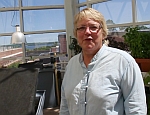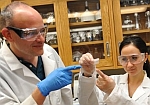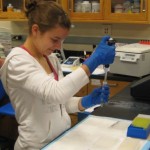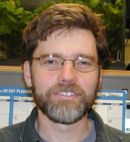
Professor Chandrashekhar Joshi has been appointed as the interim chair of the Department of Biological Sciences for the 2012-13 academic year, while the department conducts a search for a new chair.
According to Bruce Seely, dean of the College of Sciences and Arts, the college and the department are “borrowing” Joshi from the School of Forest Resources and Environmental Science for the year to insure that the department continues the progress made over the past three years in revitalizing its program of graduate education and research.
“Shekhar is perfectly positioned for this responsibility,” Seely said. “He is a molecular biologist so he’s already a member of the diverse profession of biological scientists. The courses he regularly teaches clearly show the connection between his work and that of the department–molecular genetics, genomics and bioinformatics.” Joshi’s research interests include bioenergy and cellulose biosynthesis in trees.
Seely said that Joshi has been “extraordinarily successful” in securing external funding to support his scholarship and research, as well as that of his graduate students.
Joshi received Michigan Tech’s Research Award in 2011, was the director of the Biotechnology Research Center (BRC) and routinely offered a course on grant writing for graduate students from across the campus.
“Shekhar has been a marvelous ambassador for interdisciplinary activities,” said Seely, noting that Joshi played a key role in the “Wood to Wheels” program; establishing the transatlantic MS in Forest Resources; providing various summer programs for high school science teachers; and setting up a multi-year collaboration with bioenergy faculty at Chonnam National University in Gwangju, South Korea.
“We’re excited to have Shekhar join us in the role as department chair in biological sciences,” Seely said. “He is a perfect role model and mentor for the numerous faculty hired in the department over the past several years. He exemplifies the college’s desire for chairs who lead by example, demonstrating excellence in teaching, scholarship and professional and institutional service.”
At the same time, Seely added, “Shekhar will fulfill the demanding role of department chair–mediating between faculty and staff and the administration.”






